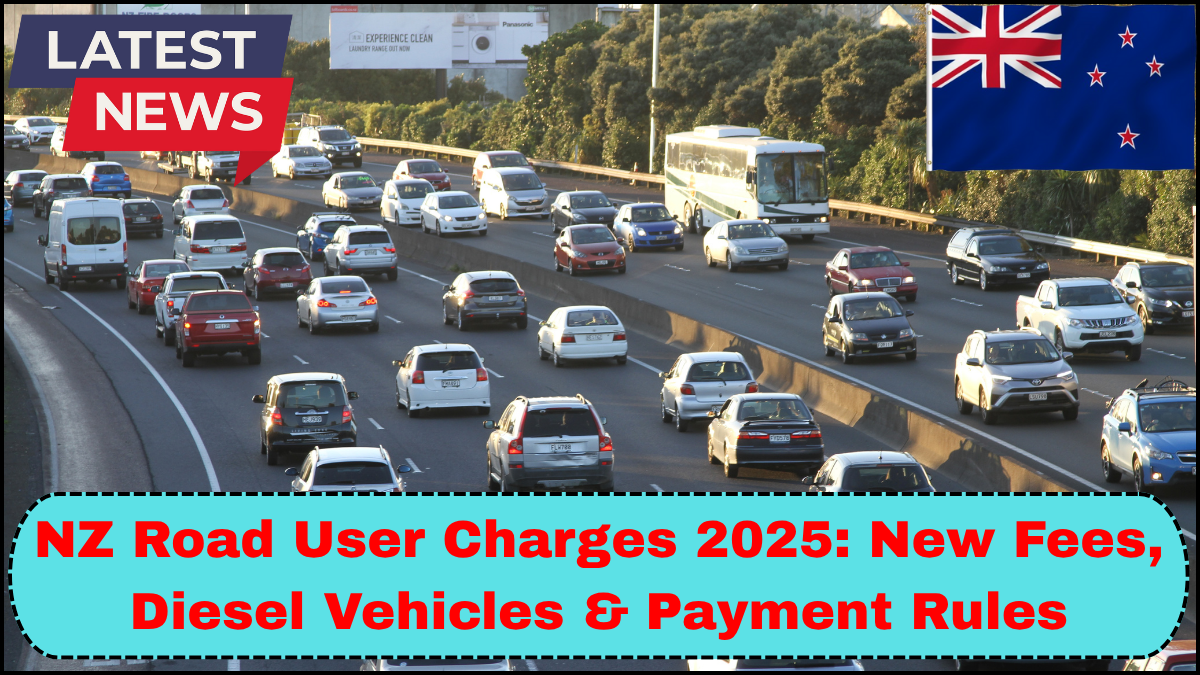The NZ Road User Charges 2025 update is a significant policy revision impacting how heavy and light diesel vehicles contribute to road maintenance funding. With new fee structures, revised payment systems, and stricter compliance mechanisms, it’s critical for fleet operators and private owners alike to understand what these changes mean for their operations and budgets.

Why Road User Charges Exist in New Zealand
Unlike petrol-powered vehicles, which contribute to road upkeep through fuel excise duties, diesel vehicles are not taxed at the pump. Instead, New Zealand uses a Road User Charges (RUC) system to ensure diesel and other non-petrol vehicles pay their fair share. RUC funds are reinvested into maintaining and developing national transport infrastructure.
What’s New in 2025?
The 2025 changes to NZ Road User Charges reflect growing pressure on the country’s road network, environmental considerations, and the need for fair cost distribution.
1. Fee Increases Across Multiple Vehicle Types
A significant aspect of the NZ Road User Charges 2025 revision is the fee increase. The new rates will affect most vehicle types, particularly:
- Light diesel vehicles (under 3.5 tonnes)
- Heavy diesel trucks and trailers
- Electric vehicles over a certain weight class
For example, light diesel vehicles will now incur an average increase of 10-12% per 1,000 km block. This aligns with government goals to cover the true cost of wear and tear these vehicles impose on roads.
2. New Classification Bands
Vehicles are now grouped into more detailed weight and axle classifications. This allows for a more accurate assessment of road damage contribution and ensures users pay according to actual usage.
3. Digital Payment Integration
The 2025 RUC updates include streamlined digital payment options. Operators can now:
- Purchase RUCs via mobile apps
- Set up automatic top-ups based on odometer readings
- Integrate RUC payments with fleet management software
This digital shift improves compliance tracking and simplifies payment for regular users.
Diesel Vehicles Under the Spotlight
Diesel vehicles continue to be the focal point in discussions around road usage and environmental impact. With their higher torque and towing capabilities, diesel engines are favored for both commercial and recreational use. However, they also:
- Cause more road surface wear
- Emit more nitrogen oxide (NOx) and particulates
- Typically travel longer distances annually
As a result, NZ Road User Charges 2025 have specifically increased RUC obligations for diesel-powered fleets, aiming for a more equitable infrastructure funding model.
Payment Rules and Compliance Updates
Compliance is tightening in 2025. Key changes include:
- Real-time enforcement technology: Mobile inspection units and camera networks will match vehicle IDs to valid RUC licenses.
- Stricter penalties for underpayment, expired distance licenses, and misreporting odometer readings.
- Mandatory reporting for fleet operators, especially for vehicles exceeding 50,000 km/year.
Owners must ensure their vehicles are always operating with a valid RUC, and odometer records must be accurately maintained and reported.
How to Stay Compliant
To stay on top of the NZ Road User Charges 2025:
- Use NZTA-approved apps or portals for payments.
- Schedule routine audits of odometer readings and RUC purchases.
- Train drivers and fleet managers on new classification bands and payment schedules.
- Budget for higher RUC expenses, especially if operating diesel vehicles.
Frequently Asked Questions
Q1: Do petrol vehicles need to pay RUC?
No. Petrol vehicles pay a fuel excise duty at the pump, so they are exempt from RUC.
Q2: Can I prepay my RUC for the year?
Yes. Prepaid distance licenses are available and often recommended for fleet operators.
Q3: What happens if I forget to renew my RUC?
You may face on-the-spot fines, and your vehicle can be removed from operation until the payment is rectified.
Q4: How do I check if I’m in the right vehicle class?
Visit the NZTA website or consult a licensed RUC provider for a classification audit.
Q5: Are there discounts or exemptions for electric vehicles?
Some light EVs remain exempt, but heavier electric vehicles are now subject to RUC if they exceed certain thresholds.
click here to learn more